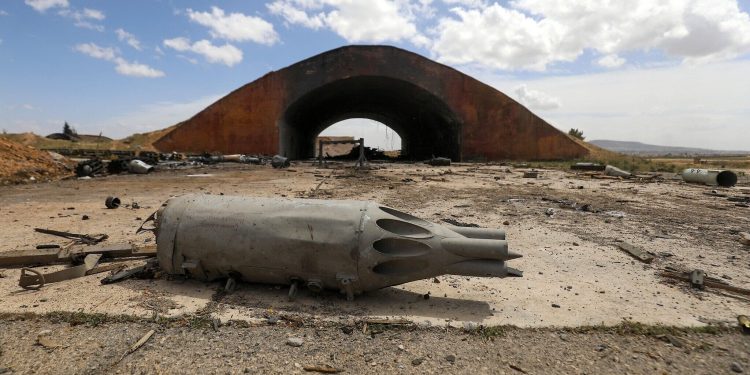Israel and Turkey organized technical talks aimed at establishing a deconfliction mechanism for Syria, an Israeli source was cited Wednesday as confirming.
The source told Channel 12 news that a “mechanism will be established, similar to that built between Israel and Russia”.
The comment followed the remarks on Wednesday by Turkish Foreign Minister Hakan Fidan in a live interview on CNN Turk that the two countries have held talks on the question “if necessary”.
According to a report from the Ynet news site, a senior Israeli official said that at a meeting of the security firm on Wednesday evening, Netanyahu told Ministers that Israel did not seek a confrontation with Turkey in Syria, but will not hesitate to act if necessary to defend itself.
The Prime Minister added that he would ask for help from US President Donald Trump if necessary, given Trump’s close relationship with Turkish chief Recep Tayyip Erdogan.
Escalation
Fidan’s remarks occurred a week after Israel has intensified air strikes on Syria, declaring attacks on the new government in Damascus when he accused Turkey of trying to transform the country into Turkish protectorate.
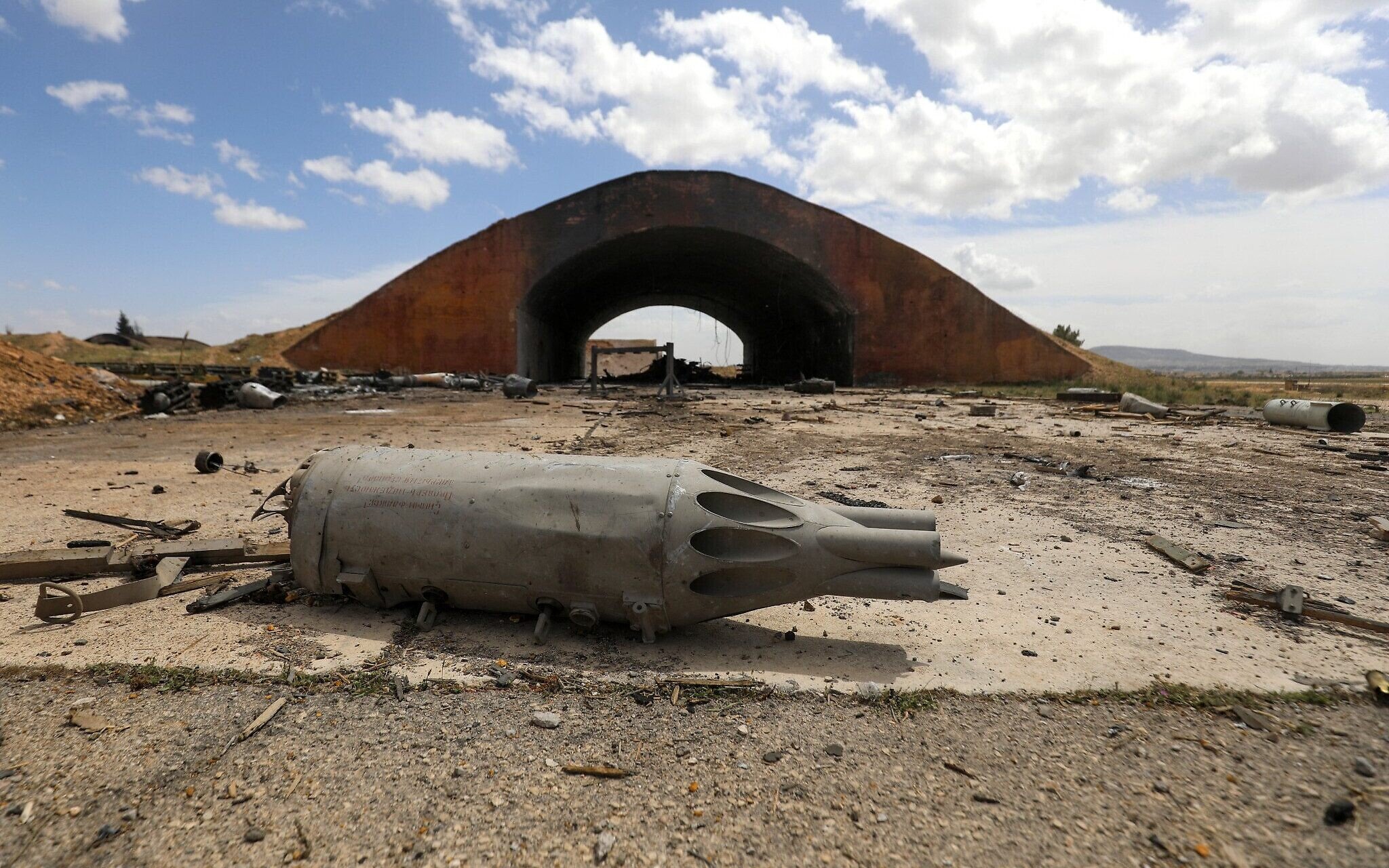
Debris are on the ground on the scene of an Israeli strike in a military installation of the governorate of southern Hama in Syria, April 3, 2025. (Abdulaziz Ketaz / AFP)
Israel has carried out a campaign to destroy Syrian military capacities so that they will not be able to threaten Israel and fears that if Turkey establishes a military presence in Syria, it could hinder the freedom of action of the Israeli Air Force in the region.
Turkey is a key contributor to the coalition led by the Islamists who overthrew Bashar al-Assad in Syria after almost 14 years of civil war. Israel is wary of the Islamist presence at its border and has put pressure on the United States to curb the growing influence of Turkey in the country.
On Saturday, Reuters reported that Turkey had developed at least three air bases in Syria where it could deploy forces as part of a planned defense pact that could see new Turkish bases in the center of Syria and the use of Syria’s airspace, before Israel strikes the sites with air strikes.
Israeli strikes on the three sites Turkey evaluated, including a heavy dam last Wednesday evening, came despite Ankara’s efforts to reassure Washington that a deeper military presence in Syria was not intended to threaten Israel, according to the report, citing four people familiar with the problem.
“While we carry out certain operations in Syria, there must be a decoration mechanism with Israel, which steals aircraft in this region, similar to the mechanisms we have with the United States and Russia,” said Fidan on Wednesday.
“There are technical contacts to prevent combat elements from malarying each other,” continued Fidan, adding that technical teams communicate “if necessary”.
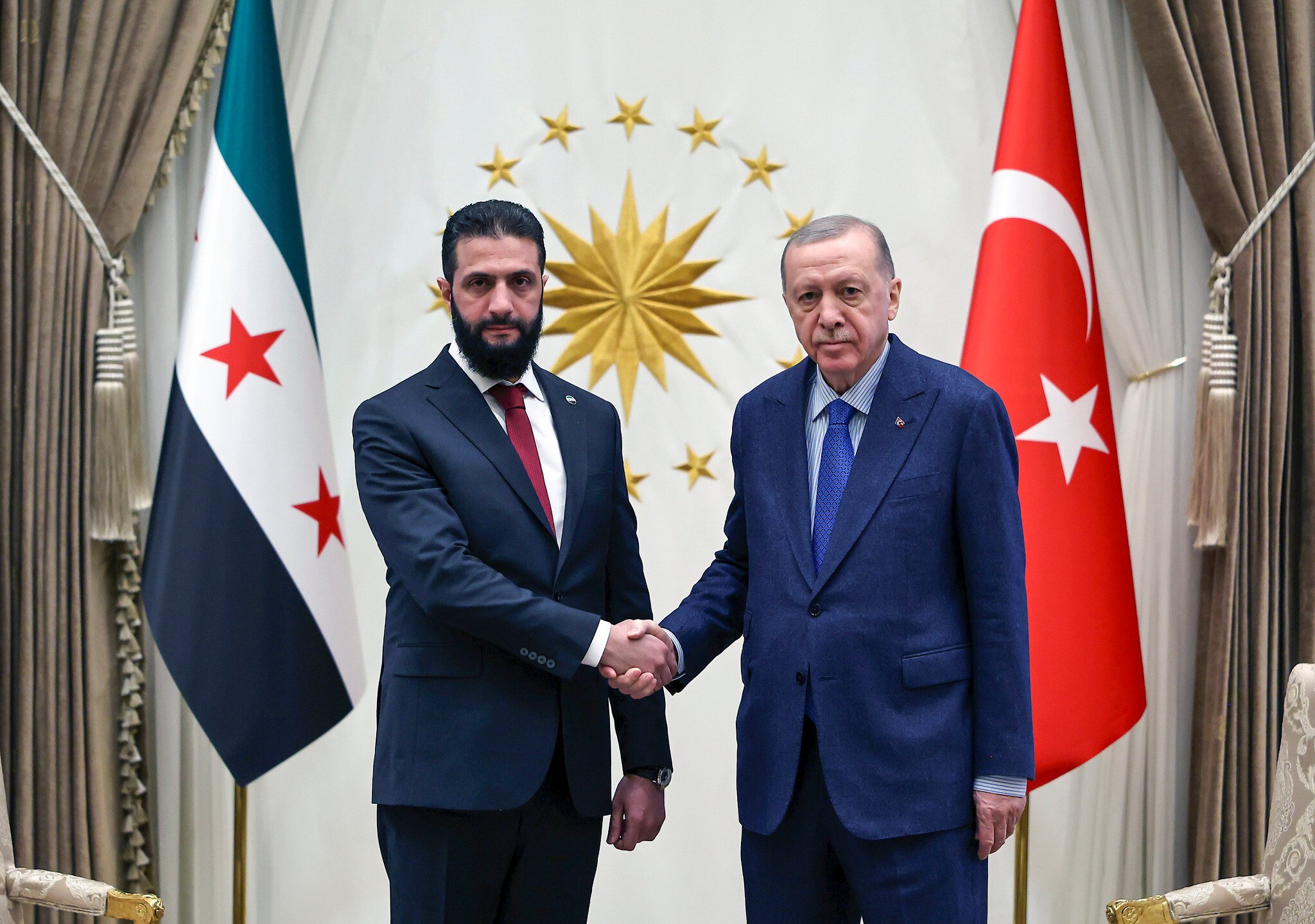
Turkish President Recep Tayyip Erdogan, right, shakes hands with the acting president of Syria Ahmed Al-Sharaa at their meeting at the presidential palace, in Ankara, Turkey, February 4, 2025. (Turkish presidency via AP)
The Turkish Foreign Minister said that these talks were only intended for decoration in Syria and are not intended to normalize relations.
Last week, the Ministry of Foreign Affairs called Israel “the greatest threat to regional security”.
Fidan told Reuters last Friday that “we do not want to see a confrontation with Israel in Syria because Syria belongs to the Syrians”, but that repeated Israeli strikes which eroded the capacity of the new government to dissuade threats from enemies, including the Islamic State terrorist group.
Azerbaijan, the United States offers hands
During the Annual Policy Forum at ADA University in Baku Wednesday Wednesday, the president in Azerbaijani Ilham Aliyev referred to the previous role of his country in the facilitation of the Israeli Turkish ties, noting that “the two countries are friends close to Azerbaijan.”
“We hope that the process will lead to standardization,” said Aliyev about new development, adding: “I think that, despite legitimate concerns and despite a fairly high level of distrust, it can still be found motifs of normalization and areas of mutual interest. So, the process, in my mind, should not stop, and Azerbaijan does everything that is to facilitate the process.”
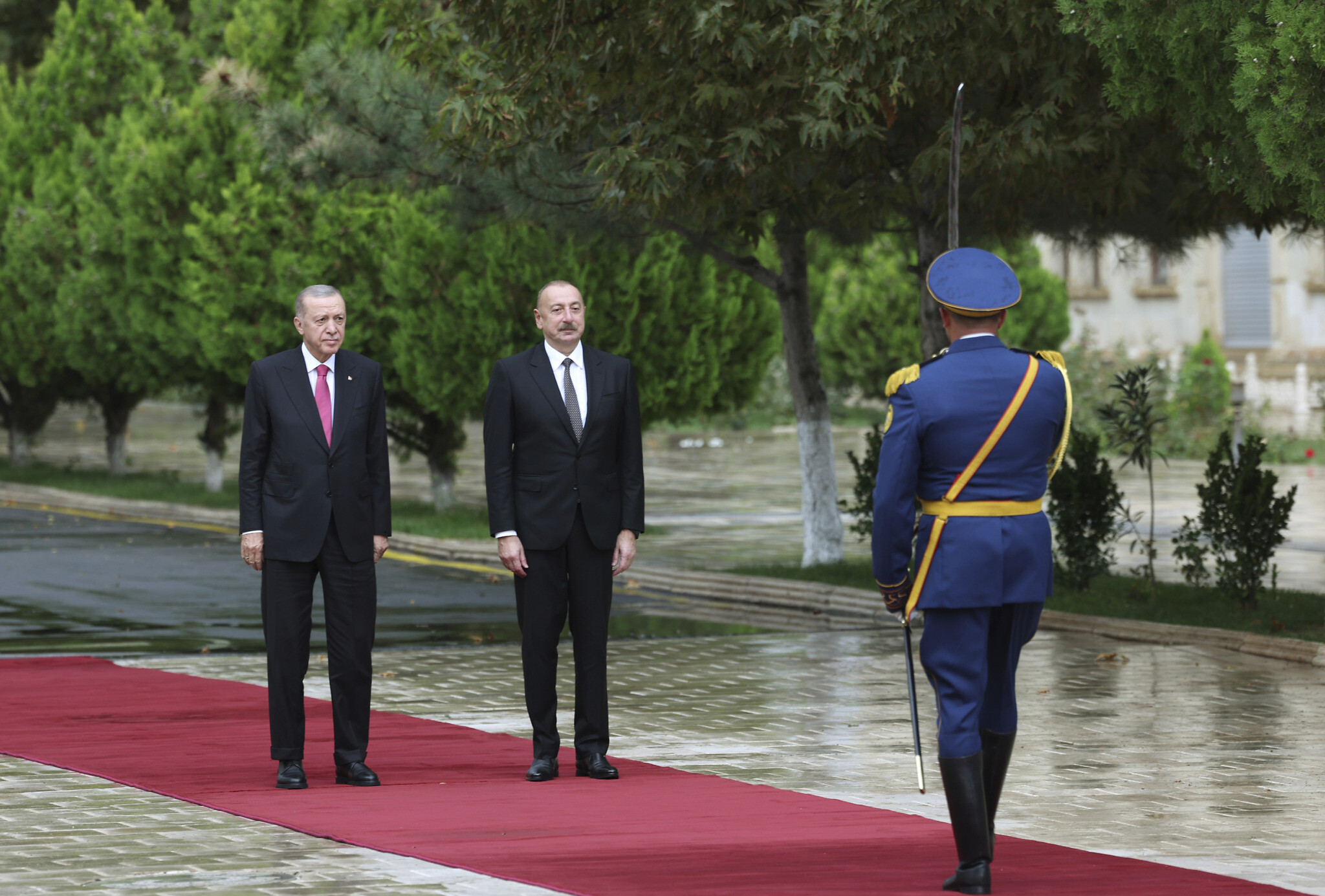
The president in Azerbaijan, Ilham Aliyev, on the right, and the Turkish president Recep Tayyip Erdogan examine an honor guard during a welcome ceremony in Nakhchivan, Azerbaijan, September 25, 2023. (Turkish presidency via AP)
Trump introduced himself on Monday as a mediator between Israel and Turkey in their fight against politically fragile Syria.
The American president, speaking alongside Netanyahu during the visit of the Prime Minister’s White House, said that the negotiations could be helped by the president’s “great relations” with Erdogan, whom he said that he loved a lot and called “very intelligent”.
Trump seemed to recognize the domination of Turkey in Syria, saying that he had told Erdogan that he had “taken up by substitutes”.
“I said to the Prime Minister (Israeli), I said,” Bibi, if you have a problem with Turkey, I really think I will be able to solve it “, Trump told journalists, using Netanyahu’s nickname.
“You know, I have a very, very good relationship with Turkey and their leader, and I think we can solve it,” he added. “As long as you are reasonable, you must be reasonable.”
Netanyahu expressed Israeli concerns about Turkish influence in Syria while praising the American president as a mediator.
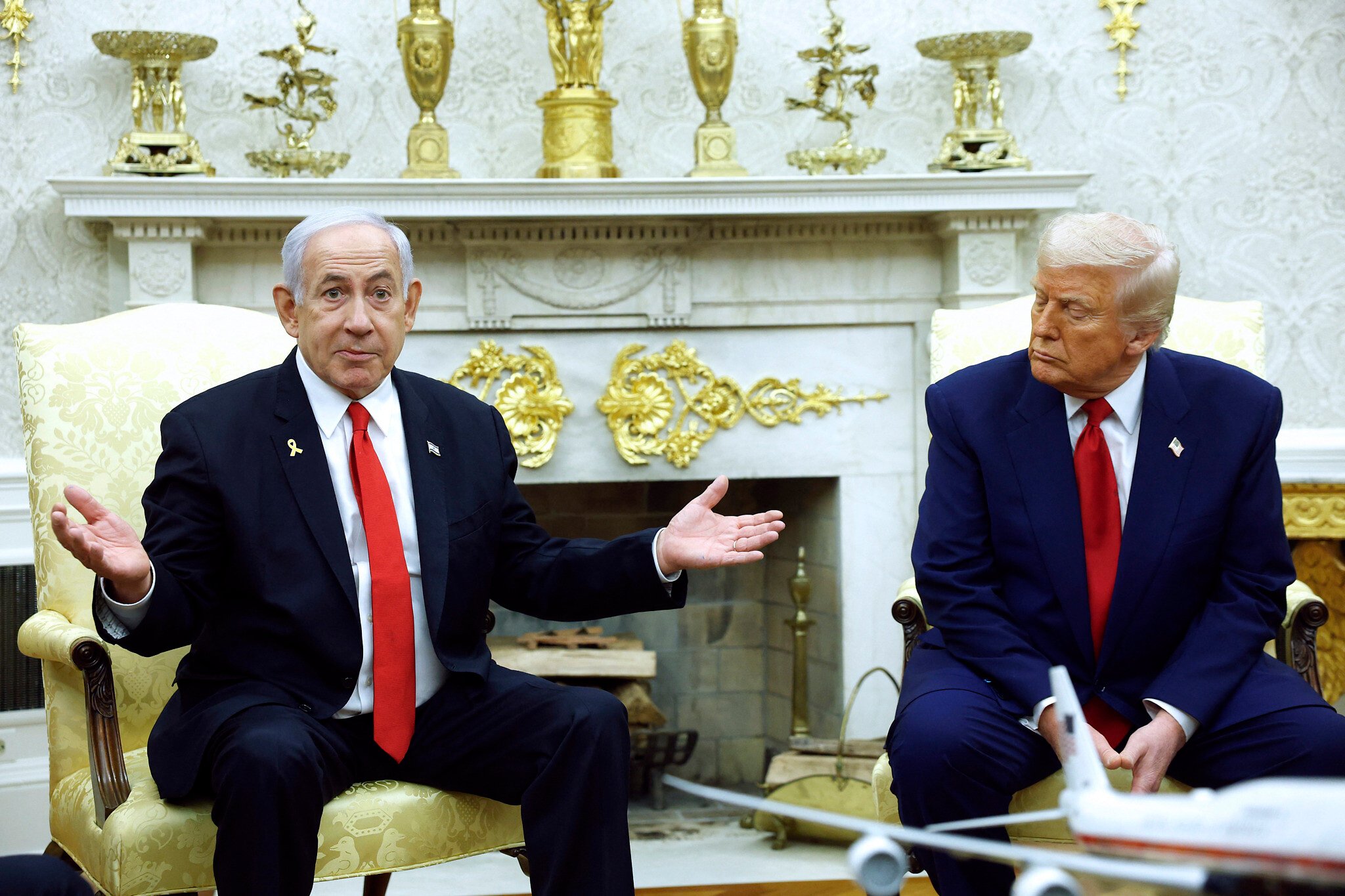
Prime Minister Benjamin Netanyahu, on the left, speaks alongside American President Donald Trump at a meeting at the Oval Office of the White House in Washington, DC, April 7, 2025. (Kevin Dietsch / Getty Images via AFP)
“We have had neighboring relations with Turkey that have deteriorated, and we do not want to see Syria used by anyone, including Turkey, as a base of attack in Israel,” he said.
“We have discussed how we can avoid this conflict in various ways, and I think we cannot have a better interlocutor than the President of the United States for this purpose,” added Netanyahu.
Hamas and hard rhetorical links
Erdogan is a lawyer for Hamas and one of Israel’s main detractors on the world scene, and his country has often greeted the Palestinian terrorist group supported by Iran, the attack on the Palestinian terrorist group sparked the war in progress, when thousands of terrorists have invaded southern Israel south of Israel, killing some people and taking 251 hosts.
Erdogan was quoted in a speech two weeks ago, calling Allah to “destroy Israel Zionist”.
Less than a month after the October 7 attack, Erdogan, whose government had recently restored complete diplomatic ties with Israel, has massively increased its criticism from the country. At the end of October 2023, he said that Hamas was not a terrorist organization but a “Mujahideen” liberation group fighting for its land and its people, and declared in an address to a mass pro-Palestinian rally in Istanbul that his country made preparations to proclaim Israel a “war criminal” for his actions in Gaza.
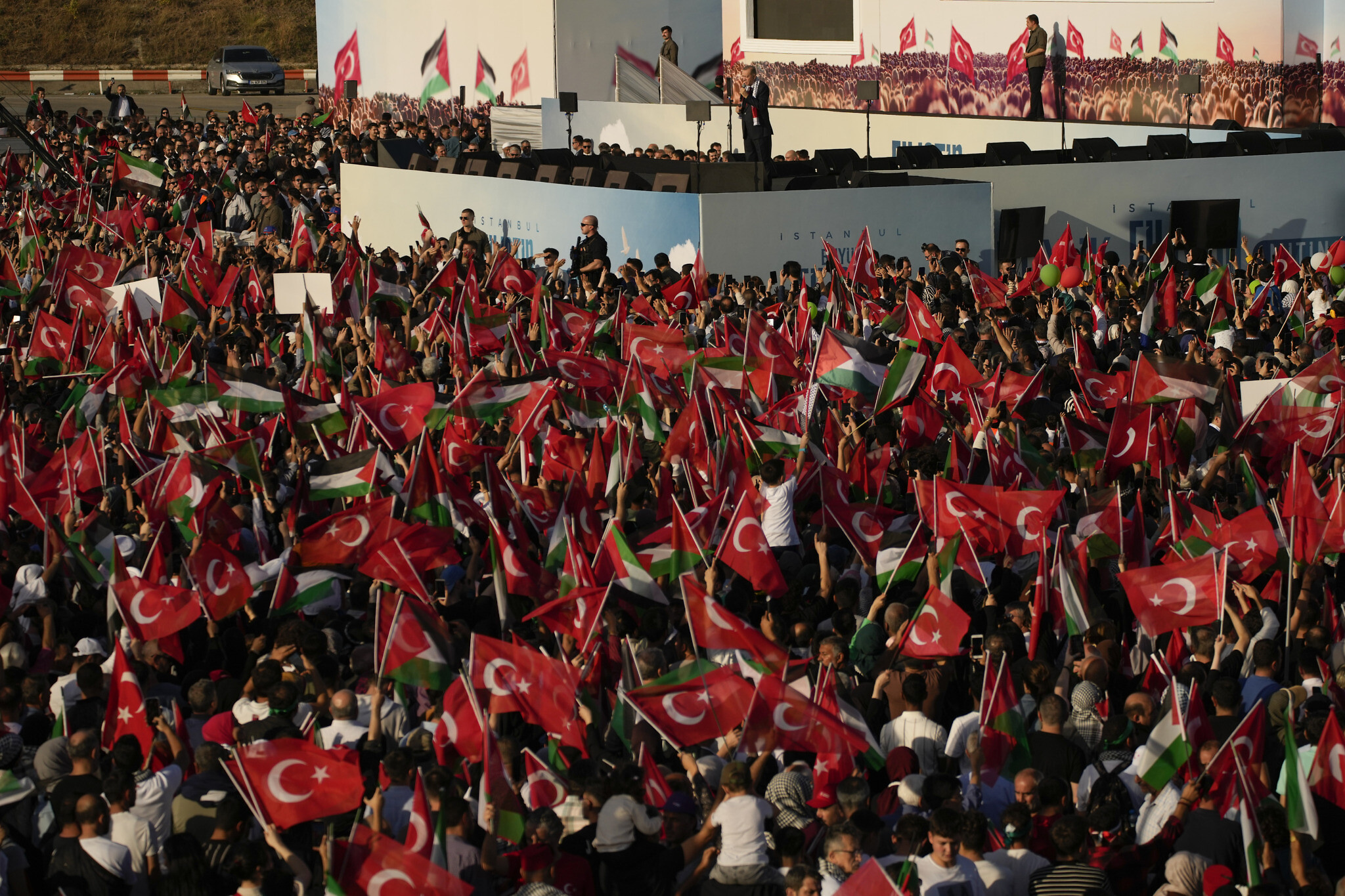
Turkish President Recep Tayyip Erdogan, speaks to participants during a rally to show their solidarity with the Palestinians, in Istanbul, Turkey, October 28, 2023. (AP photo / Emrah Gurel)
Israel has announced that she would withdraw her diplomats from Turkey in response to Erdogan’s inflammatory statements.
Turkey welcomed several officials from Hamas and also had to absorb more when Qatar expelled the management of the terrorist group in November 2024, which would have been under pressure from the United States.
In May 2024, Turkey interrupted all bilateral trade with Israel, aimed at putting pressure on Israel to allow an unhindered aid flow in Gaza.
Past standardization efforts
In September 2023, less than a month before Hamas’ attack launched the current conflict, Netanyahu and Erdogan discussed the effort to standardize relations with Saudi Arabia during their very first known meeting, which took place on the sidelines of the United Nations General Assembly in New York.
The leaders agreed at the time to coordinate mutual visits “in the near future”, according to the Netanyahu office.
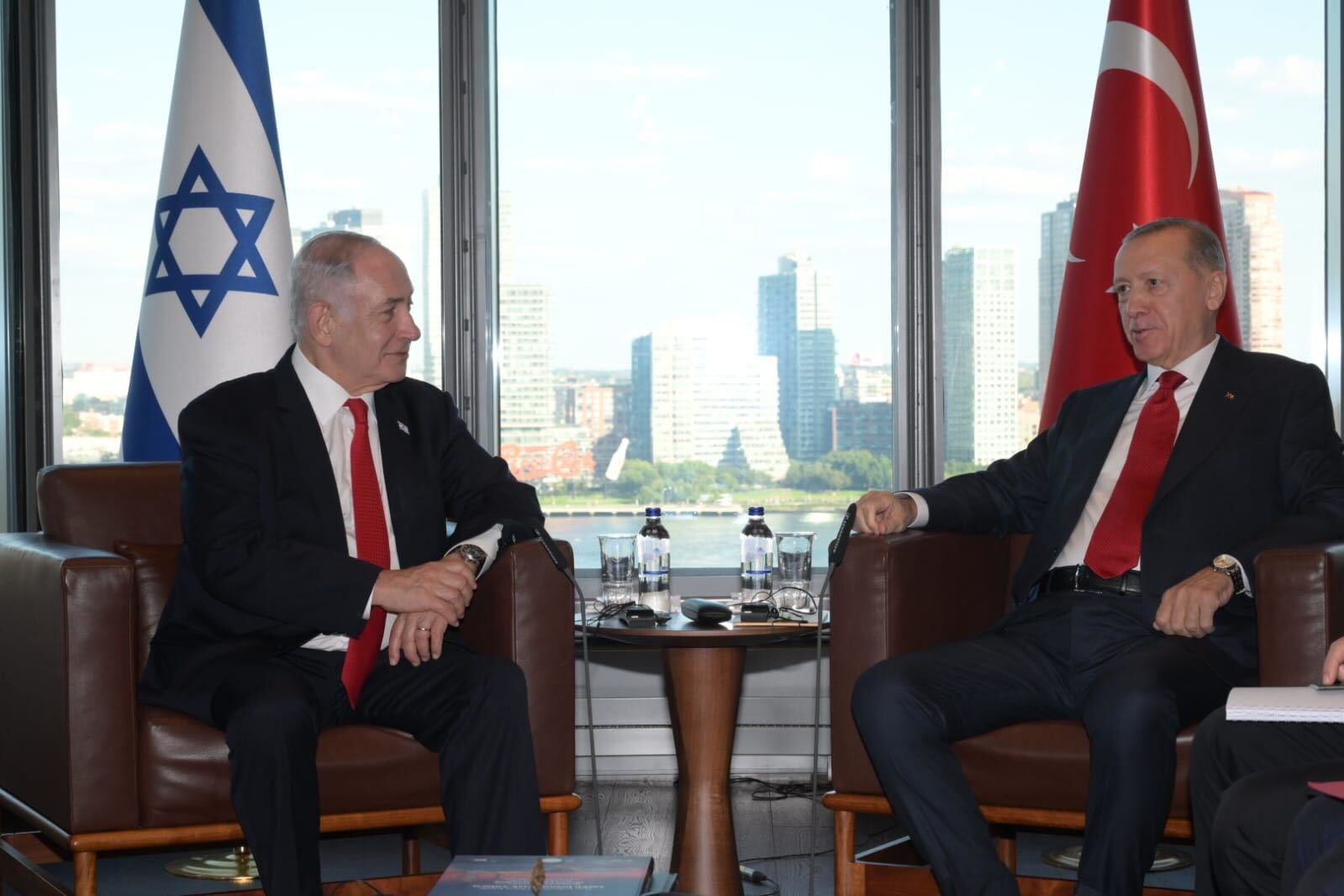
Prime Minister Benjamin Netanyahu meets Turkish President Recep Tayyip Erdogan on the sidelines of the United Nations General Assembly in New York on September 19, 2023. (Avi Ohayon / GPO)
He came in the middle of a warming of links between Israel and Turkey after years of animosity between the leaders of the two countries. President Isaac Herzog was organized by Erdogan in March 2022 in Ankara – the first high -level Israeli visit since 2008.
Israel was a long -standing regional ally of Turkey before Erdogan arrived in power, but the links imploded after a 2010 Israeli commando raid on the Mavi Marmara ship, linked to Gaza, part of a Flatillala blocking the ship.
Netanyahu and Erdogan have repeatedly targeted the brickbats against each other in the years that followed. In July 2014, Erdogan accused the Jewish state of “keeping Hitler’s mind alive” during a war with Gaza.
Faced with a hardening of diplomatic isolation and economic misfortunes, Erdogan began to publicly display an opening towards rapprochement in December 2020.
In August 2022, Israel and Turkey announced a complete renewal of diplomatic ties, a decision which, according to Aliyev, said on Wednesday that Azerbaijan had played a key role in facilitation.
Times of Israel Staff contributed to this report.

